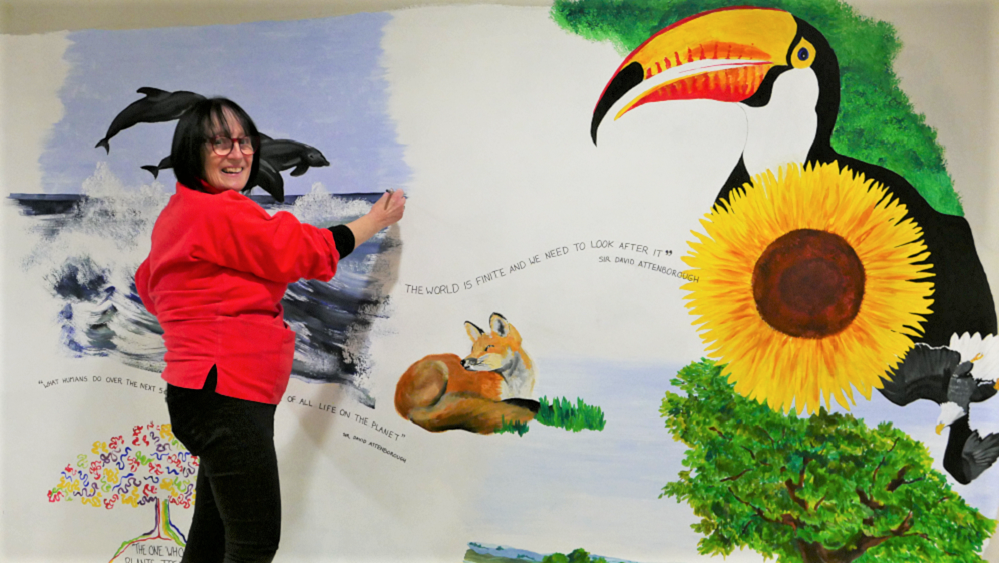Greenham and Crookham Commons grazing rights row
A row has broken out over cattle grazing rights on Greenham and Crookham Common.
There are moves to impose grazing regulations and limit the number of animals and the time of year they graze.
The decision has to be made by the Government and those against the plans have a month to object.
Commoners with cattle rights are claiming the moves to restrict them are not necessary.
They say the Berkshire Buckinghamshire and Oxfordshire Wildlife Trust (BBOWT), which manages the common on behalf of West Berkshire Council, isn’t managing gorse growth effectively, thus limiting grazing land.
“One reason for this is that they are poor at managing the gorse,” said Chris Austin, a commoner with 10 head of cattle, and former chairman of the Commoners Commission.
“When it was handed back by the RAF there is much more gorse now than then. They should be trimming back the gorse. It advances more quickly than they can control it.
“Graziers don’t want this. I expect it is a money saving exercise. BBOWT are wildlife reserve experts, not common managers. Dog walkers, park runners etc have all experienced difficulties using the common. Now graziers.”
Currently up to 200 cattle graze on the 1,000 acres of common – reducing to around 30 in the winter months. Around half of the grazing rights have been sub contracted to commercial beef farmers.
“Overgrazing on the commons has been an ongoing issue for the Greenham and Crookham Commons Commission for some time and WBC support their intentions to introduce a number of sensible regulations which seeks to re-establish the balance between the rights of commoners and the critical ecological balance on the commons,” said Paul Hendry, countryside manager at West Berkshire Council.
While the site is managed by BBOWT on behalf of West Berkshire Council, the management of the commons is overseen by the Greenham and Crookham Commons Commission.
“The Commoners Commission governance committee has been trying to get regulation established for the last five/six years,” explained John Thorogood, who is a member of the Greenham and Crookham Commoners Commission and chairman of the governance committee.
“It was clear that the graziers were not prepared to follow the document prepared by BBOWT on managing the common,”
“There is absolutely no agenda from the commission to stop grazing as it is a fundamental management tool for the common, however it needs to be monitored and react to changing circumstance.
“Last summer was a classic example when we experienced long periods of little or no rainfall, however there was no action from the graziers to reduce pressure on the sward, which has had a detrimental long-term effect on recovery and the amount of grazing available in the long and short term.”
“Furthermore, allowing this over-grazing is in conflict with the Greenham and Crookham Commons Act: Section 8 of the 2002 Act gives precedence to the conservation and restoration of the natural features of the commons including its flora, fauna and ecology, and its conservation as a Site of Special Scientific Interest (SSSI). This priority for conservation outweighs the other interests for which the commons land is designated, such as grazing.
In a joint statement, BBOWT and the Greenham And Crookham Commons Commission said: “BBOWT fully supports the commission in introducing these regulations, which we hope will mean that the commons can be managed better for wildlife and people whilst enabling the commoners to continue to exercise their right to graze animals.
“Grazing is an integral part of the management of lowland habitats and this is something that we want to ensure is sustained so the aims and purposes as identified in the Greenham and Crookham Commons Act can be delivered.
“BBOWT is also committed to managing gorse on the commons to agreed levels, allowing more space for grass to the benefit of graziers and wildlife.”
The regulations have now been finalised, and are ready to go to the secretary of state for approval.
The regulations do not seek to remove commoners’ property rights, nor do they a remove the right to pasture animals on the commons.
If the regulations are approved, the commission will seek to limit the number of animals that can be grazed on the commons to 120 cows plus their calves, but also restrict the timings of when animals can be grazed to the months of May to December.




